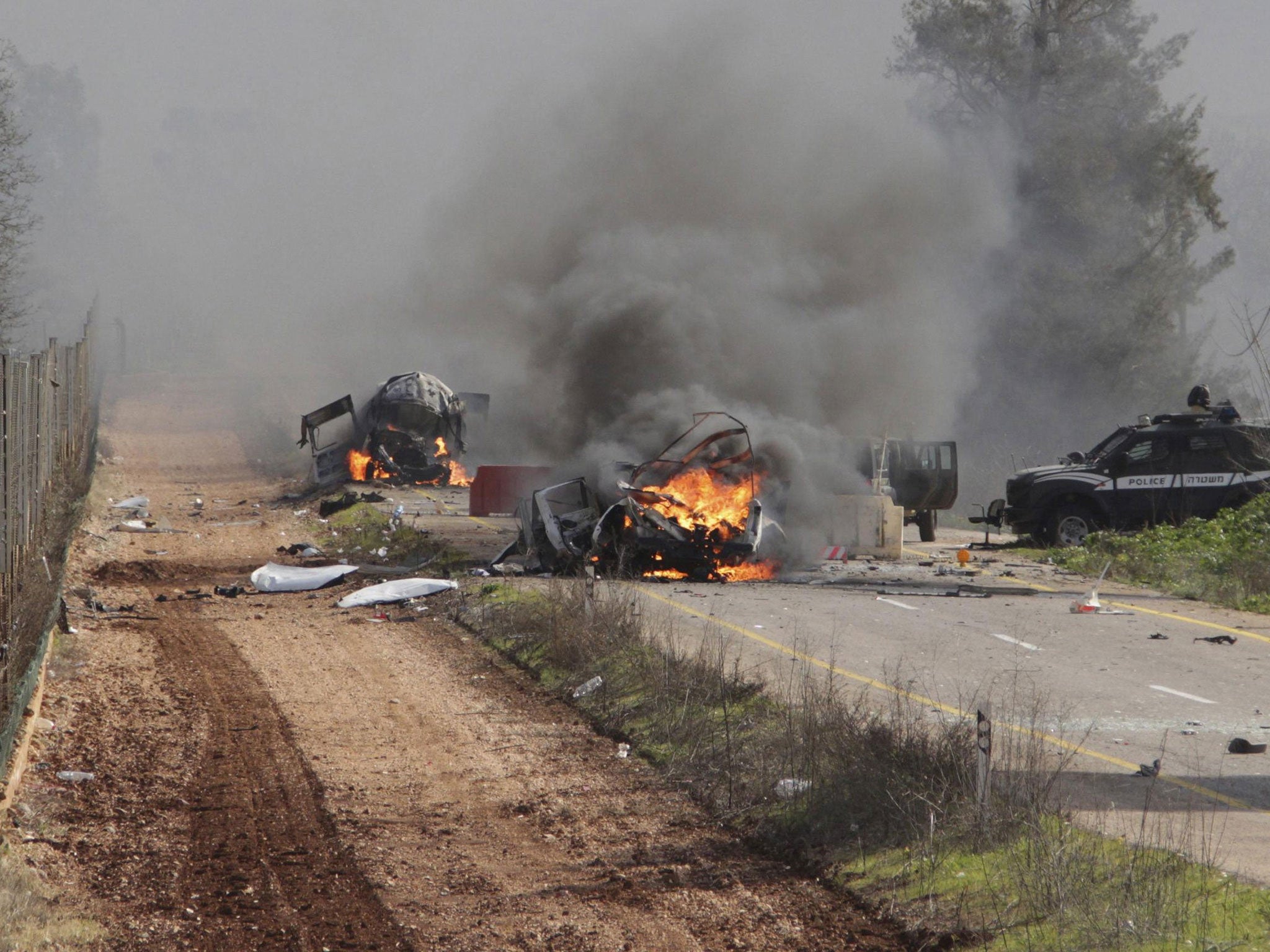Israel vs Hezbollah: Why another war is unlikely
The question on everybody's lips today is, "Escalation or restraint?"

Your support helps us to tell the story
From reproductive rights to climate change to Big Tech, The Independent is on the ground when the story is developing. Whether it's investigating the financials of Elon Musk's pro-Trump PAC or producing our latest documentary, 'The A Word', which shines a light on the American women fighting for reproductive rights, we know how important it is to parse out the facts from the messaging.
At such a critical moment in US history, we need reporters on the ground. Your donation allows us to keep sending journalists to speak to both sides of the story.
The Independent is trusted by Americans across the entire political spectrum. And unlike many other quality news outlets, we choose not to lock Americans out of our reporting and analysis with paywalls. We believe quality journalism should be available to everyone, paid for by those who can afford it.
Your support makes all the difference.Just before noon today along Lebanon’s southern border, a small unit of Hezbollah fighters attacked an Israeli military convoy, killing two Israeli soldiers and wounding 7. Hezbollah’s attack – the most deadly for Israeli forces in nine years – sparked hours of heavy Israeli shelling throughout southern Lebanon and a naval incursion into Lebanese maritime borders.
This attack certainly hasn’t taken place in a vacuum. Hezbollah has spent more than two years intervening militarily in Syria on behalf of Bashar al-Assad’s embattled government. During this time, Israel has conducted several military strikes on the Lebanese-Syrian border to prevent any weapons transfers to or from Hezbollah.
The most recent strike took place on January 18, when Israel targeted a Hezbollah convoy in Syria’s Golan Heights, killing several high-level Hezbollah commanders and Iranian officials. Today’s attack not only served as Hezbollah’s revenge, but as a message to its southern neighbor: regardless of our involvement in Syria, attacks on our forces will not go unanswered.
As much as the attack was a dispatch to Israel, it’s also a public relations stunt to reassure those Lebanese who may have started to second-guess Hezbollah’s military capabilities. In an in-depth televised interview on January 15, Hezbollah Secretary-General Hassan Nasrallah confidently claimed that the Party of God remains ready and willing to strike its southern neighbor at any time.
When Israel targeted Hezbollah’s convoy a mere three days later, many Lebanese saw the strike as a direct challenge to Nasrallah’s statement. Today’s attack serves to clear away any domestic doubts and restore confidence in the Party of God.
News of the incident has been met with very mixed reactions among Lebanese citizens. In Beirut’s southern suburbs – where Hezbollah support runs very high – spats of celebratory gunfire fill the air. Elsewhere, cars cleared the streets as Lebanese anxiously followed news coverage of developments along the border. Some condemned, others celebrated – but all wondered what would happen next.
As Israeli planes continue to circle above southern Lebanon, the question on everyone’s lips today is, “Escalation, or restraint?” To many Lebanese, today’s attack is reminiscent of the border incident in 2006 that sparked a month-long war between Israel and Hezbollah. Zeinab, 29, is a resident of Beirut’s southern suburbs and says she’s terrified of a repeat of that destructive confrontation. “I lost everything in the last war, and I’m not ready to lose it again,” she said. “We have our visas and passports ready if we need to leave.”
Despite the seriousness of today’s incident, a full-blown war is unlikely. Hezbollah’s attack was calculated to be as proportionate as possible to Israel’s strike in southern Syria: it ambushed a military convoy in the Shebaa Farms – the equivalent of Syria’s Golan Heights. With Israeli parliamentary elections exactly seven weeks away, Prime Minister Benyamin Netanyahu is unlikely to risk a war as disastrous as the one in 2006. And although Hezbollah strives to prove otherwise, the significant resources it has poured into its intervention in Syria means it’s unable to maintain an open front with Israel. Tensions remain high, but it appears that this volatile border area may have escaped further escalation – for now.
Join our commenting forum
Join thought-provoking conversations, follow other Independent readers and see their replies
Comments